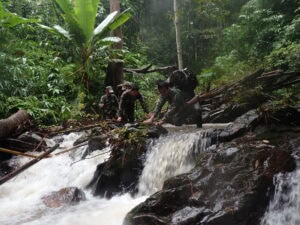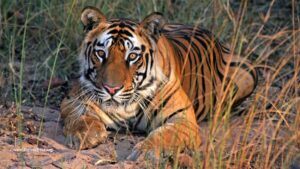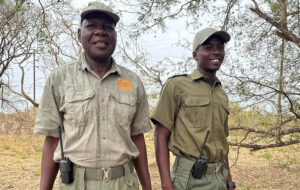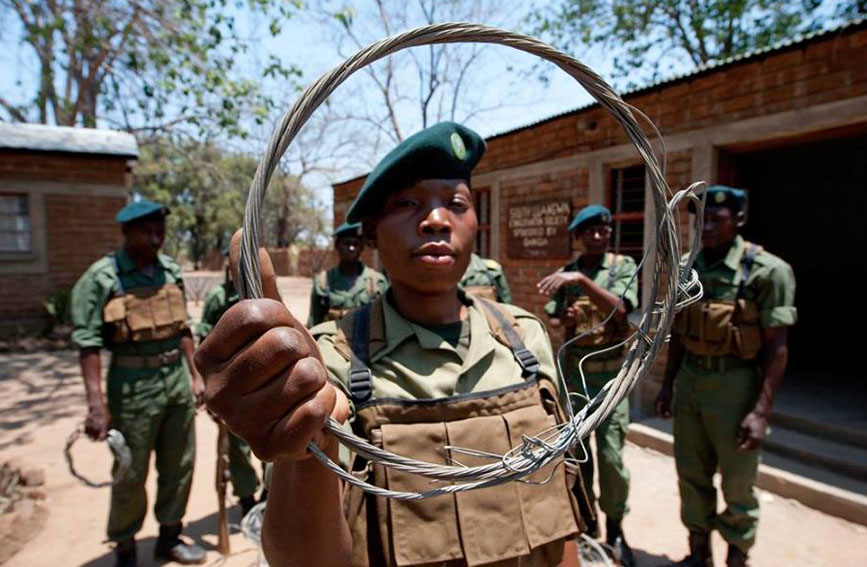Rebirth of the Wild in Iberá

Feature Image: Rangers look on as a Collared Peccary takes its first steps as a truly wild animal. Rewilding Argentina are releasing many native animals in the Iberá National Park to restore the functionality of the landscape and it’s diverse ecosystems.
Imagine a job where you’re helping re-establish nature on a vast scale. Rewilding Argentina has worked collaboratively and patiently to establish over 1.4 million hectares of protected habitat including the Iberá National Park in the north of the country.
Sebastian Di Martino is the Conservation Director at Rewilding Argentina.
“Through active rewilding, we have successfully restored anteaters and Pampas deer to Iberá, and are working towards the reintroduction of top predators, large-sized seed dispersers and herbivores. The multispecies approach represents a formidable answer to the pressing crisis of biodiversity loss. Some of these populations are well re-established, while others will need several years of releases, management and monitoring until they are considered self-sustainable. These species will re-establish the critical ecological processes that would ultimately restore ecosystem functionality and become the cornerstone of a restorative economy with nature-based tourism,” Mr. Di Martino said.

A Ranger monitors an anteater in the Iberá National Park after using radio tracking equipment to locate the animal within the vast wilderness.
This phenomenal project requires daily work by many rangers to manage and monitor each of the species being reintroduced. Rangers also plan and execute prescribed burns to manage grasslands, patrol the area to minimise threats, and control exotic species, among other activities. Forty-three rangers are involved in this remarkable rewilding plan.
The Thin Green Line Foundation has funded equipment for the rangers. This support significantly increases capacity to ensure the survival of reintroduced species, study wildlife distribution and evaluate the self-sustainability of the new populations. Monitoring equipment helps rangers support first-time wild parents raise cubs and chicks.
Along with their daily conservation and restoration activities, the rangers are vital for engagement with local communities. With overwhelming support from communities, local people bring traditional knowledge to the program. Employment opportunities include tracking and recording wildlife.
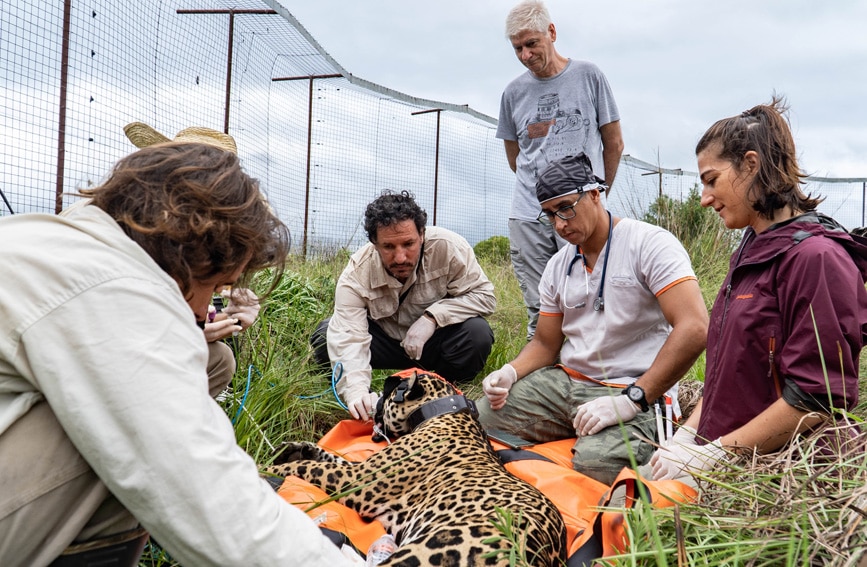
Rewilding Argentina staff monitor the health of a young Jaguar born within the breeding program. Once old enough to fend for itself, this individual will join seven other Jaguars in the Iberá National Park that have been released into the wild by Rewilding Argentina.
Observing the jaguars carefully allows the team to monitor their condition and determine how well they are adapting to their new habitat. Rewilding Argentina’s experienced field biologists and vets can intervene if individual animals are not transitioning as expected.
It is hoped that some of the additional animals to be released into the park will be rehabilitated from zoos. With a highly skilled team on hand, including well-equipped rangers, individual animals will have every opportunity to adapt to an extensive wild environment.
Pablo Guerra Aldazabal is a Jaguar Tracker with Rewilding Argentina, responsible for tracking wild animals that have been released by the organisation within their protected area. Pablo says that the best thing about his job is “being able to see these animals free, doing well. It’s amazing, it’s kind of a great recognition for all the work you have been doing sometimes for months, sometimes for years. Preparing these animals to be free”. Hear more from Pablo in an interview below:
Hear from Pablo Guerra Aldazabal, Jaguar Tracker with Rewilding Argentina, as he discussed his daily responsibilities protecting wildlife in the Iberá National Park.
All media courtesy Fundación Rewilding Argentina
